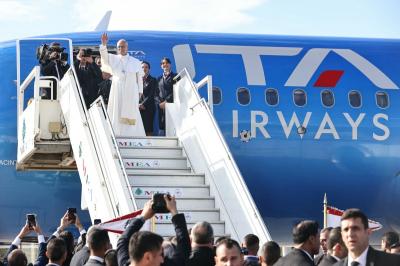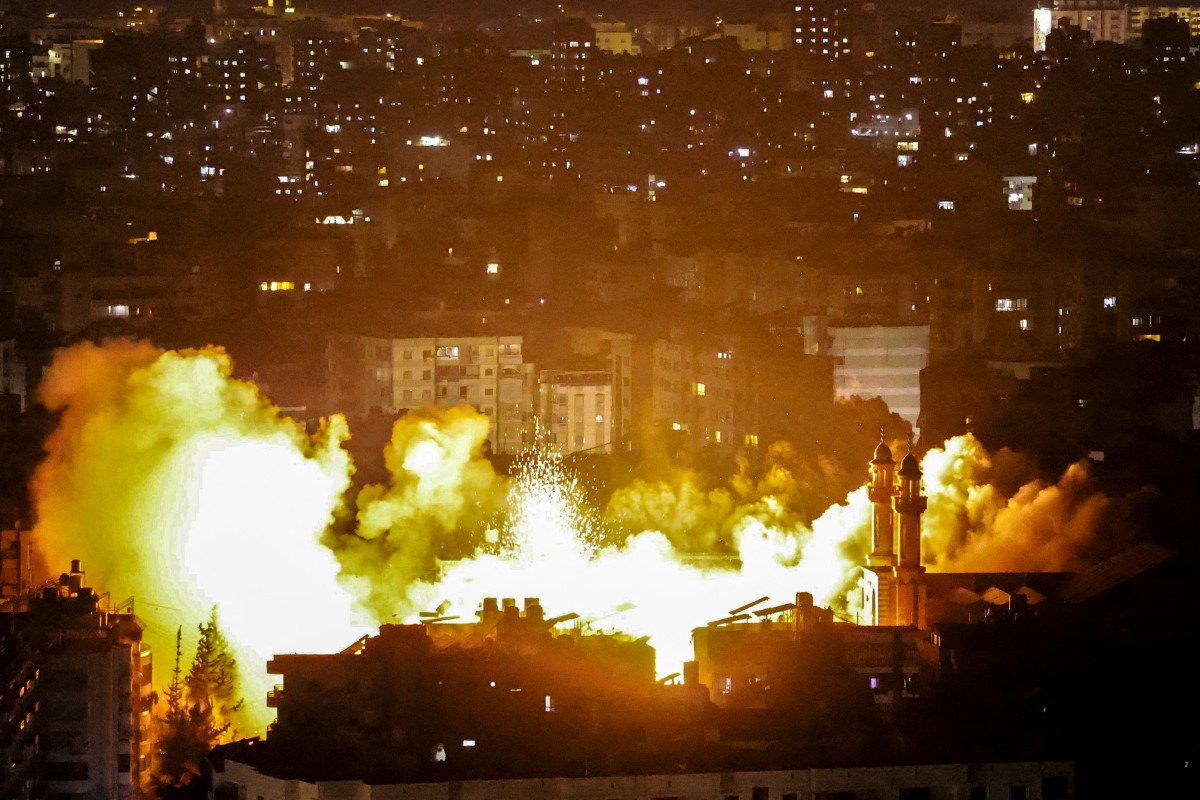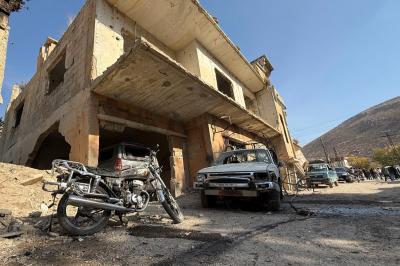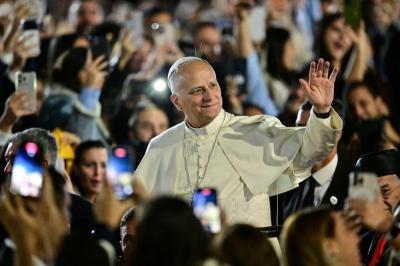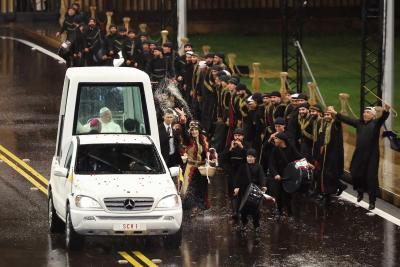The recent Israeli strikes on Beirut’s southern suburb, Dahye, have upended the Lebanese political scene once again, reigniting heated debate over "Hezbollah’s" weapons and its role within the state. The assault placed the Lebanese government—from President Joseph Aoun to Prime Minister Nawaf Salam—under intense pressure, while the Ministry of Foreign Affairs remained conspicuously silent.
After witnessing the devastation in Dahye and other parts of the South, "Hezbollah’s" weapons can no longer be discussed solely from the party’s perspective. Israel, which historically hasn't needed a pretext to strike, launched an assault that hurled "Hezbollah’s" support base back into the trauma of last year’s war. Families spent the night in their cars, displaced from their homes, awaiting a reprieve from the bombardment.
Condemnations are no longer sufficient. "Hezbollah" finds itself in a dilemma: whether to retaliate and risk a full-scale war, or stay silent and appear vulnerable. The “party” refuses to see Lebanon repeatedly targeted in such a manner but is wary of igniting another destructive conflict.
Israel says the assault had prior approval from the United States—a revelation that further embarrassed President Joseph Aoun and PM Salam. Just days ago, Aoun was trying to convince "Hezbollah" to relinquish its heavy weaponry, arguing it was no longer usable. Today, those negotiations are in limbo.
Lebanon is once again entering a perilous phase. Israeli Prime Minister Benjamin Netanyahu, increasingly isolated due to his war on Gaza and criticized by U.S. President Donald Trump, appears to have chosen Lebanon as his decompression vent justifying his latest aggression by citing the presence of weapons.
The strikes on Dahye are likely to increase the pressure on "Hezbollah". Previously, it had set preconditions for surrendering its arms: a halt to Israeli aggression, the release of prisoners, and Israeli withdrawal from occupied points. With this new wave of violence, "Hezbollah’s" refusal to disarm now seems even more defensible. But how will this impact its relationship with President Aoun and PM Salam? How will the two leaders now navigate the contentious issue of "Hezbollah’s" arsenal?
President Aoun has spared no effort to foster rapprochement with "Hezbollah", offering reassurances to encourage the group toward disarmament, particularly north of the Litani River. His most recent move—appointing former "Hezbollah"-affiliated minister Ali Hamieh as advisor on reconstruction—was seen by many as a strategic gesture, albeit one potentially made without direct coordination with the “party.” During a recent meeting with a "Hezbollah" delegation in Baabda, Aoun declared that reconstruction was "his responsibility."
Though "Hezbollah" neither endorsed nor opposed the appointment publicly, the decision faced criticism—particularly over the optics of having a "Hezbollah" figure so close to the presidency, and what that might mean for international cooperation on reconstruction.
Still, some political observers considered it a shrewd move by the President, signaling continued openness toward the Shiite duo, despite backlash against President Aoun for pursuing dialogue with "Hezbollah" about disarmament.
Aoun seems aware that a clash with "Hezbollah" and Speaker Nabih Berri during his term would paralyze governance. He has prioritized his relationship with Berri over that with Prime Minister Salam, whose rhetoric until recently was more confrontational, unlike Aoun’s more conciliatory tone.
For its part, "Hezbollah" has welcomed Aoun’s gestures and has expressed a willingness to engage with all sides. Even relations with PM Salam have taken a positive turn following a recent visit by the Loyalty to the Resistance bloc, led by MP Mohammad Raad. MP Ibrahim Mousawi summed up the meeting by saying, “It began warmly and ended even more warmly.”
But has all this goodwill been erased by the latest wave of violence in Dahye? Could the attack be a calculated message to Aoun and Salam—warning that failure to resolve the weapons issue could drag Lebanon into another war?
And what if the Dahye bombing was only the beginning—a prelude to a broader war that Netanyahu is contemplating as an escape route from his quagmire in Gaza?
"Hezbollah" now faces pressing decisions. How will it respond after such a brutal night, knowing that diplomacy has failed? How will it justify silence to its base, which once again finds itself under fire? And what about the U,S, stance—did Washington truly greenlight the assault, signaling tacit approval for a potential wider war?
The questions are many. The danger is real. And the Lebanese state’s response—so far—feels like little more than symbolic gestures. Lebanon now stands at a critical crossroads, facing the prospect of something far graver than it has yet endured.
Please post your comments on:
comment@alsafanews.com
 Politics
Politics
